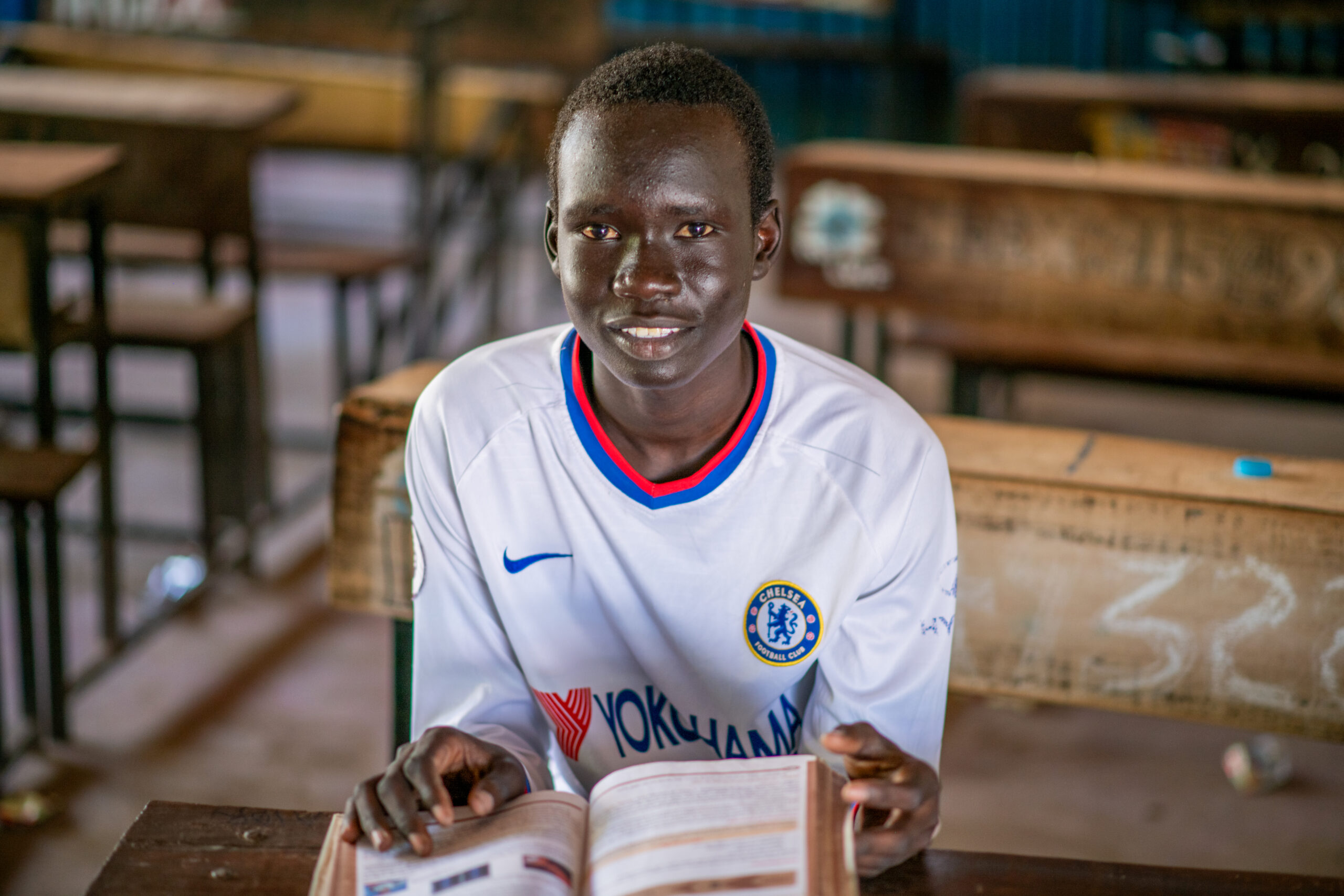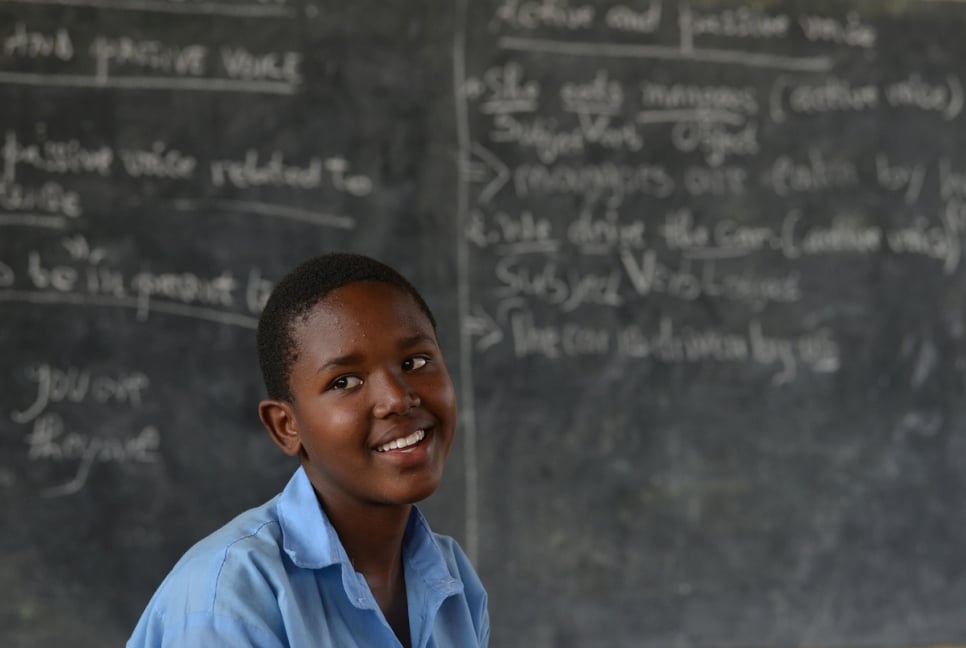Education offers a stable and safe environment for displaced children, provides life-saving and life-changing skills to help people to rebuild their communities, and pursue productive, meaningful lives.
Over half of the refugees in Kenya are children of school age (4-17 years). The majority of refugee and asylum-seeking learners are enrolled in 107 pre-primary, primary and secondary schools, and tertiary institutions located in Dadaab and Kakuma refugee camps, and the Kalobeyei Integrated Settlement. An increasing number of refugees are also attending public and private schools and universities across Kenya and abroad each year.
Despite significant gains in enrolment at all levels, an estimated 50% of school-age refugees are still out of school. Enrolment rates drop at the secondary level, and access to post-secondary education and training is limited. Only 3% of refugees are able to attend university. Barriers to school enrolment include supply issues as well as socio-economic factors, cultural norms and traditions, many of which are shared by the communities that host refugees and asylum-seekers in Kenya.
UNHCR works to support access to education for refugee children and youth through:
- Direct provision of basic education services through 107 institutions in the two refugee camps.
- Facilitation of refugees to access public schools in Kenya, or flexible non-formal education opportunities, depending on needs.
- Supporting over 600 DAFI higher education students with scholarships to attend Kenyan TVET institutions and universities, as well as facilitation of refugees to access scholarships to study abroad.
- Policy dialogue with the Ministry of Education to implement a progressive approach to inclusion of UNHCR managed schools and refugee learners into the national education system.
- Collaboration with the Ministry of Education to enhance the quality and supply of education services for refugee children and youth.
UNHCR Kenya relies on a rich network of partnerships with stakeholders from different sectors and levels to deliver and advocate for education for refugees, including the Government of Kenya, Department of Refugee Services, Ministry of Education, several implementing and operational partners drawn from international NGOs, UN agencies, local NGOs and RLOs and refugee school communities. UNHCR coordinates partners at national and sub-national levels through the Refugee Education Working Group.
Refugee education in Kenya is supported by a diverse range of donors including bi-lateral, humanitarian, development and private sector partners.
For refugees seeking information on education services in Kenya, please consult the Help page.



